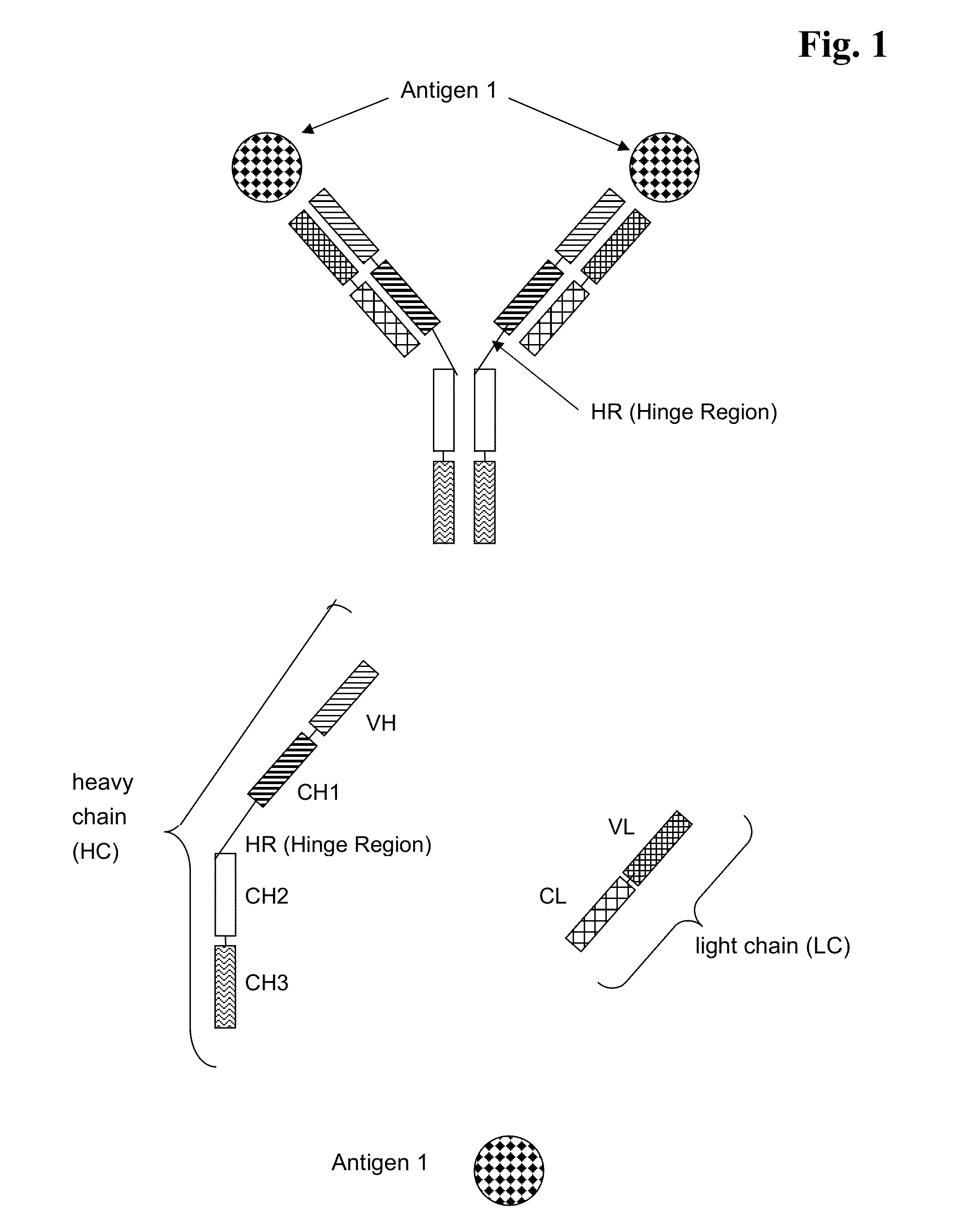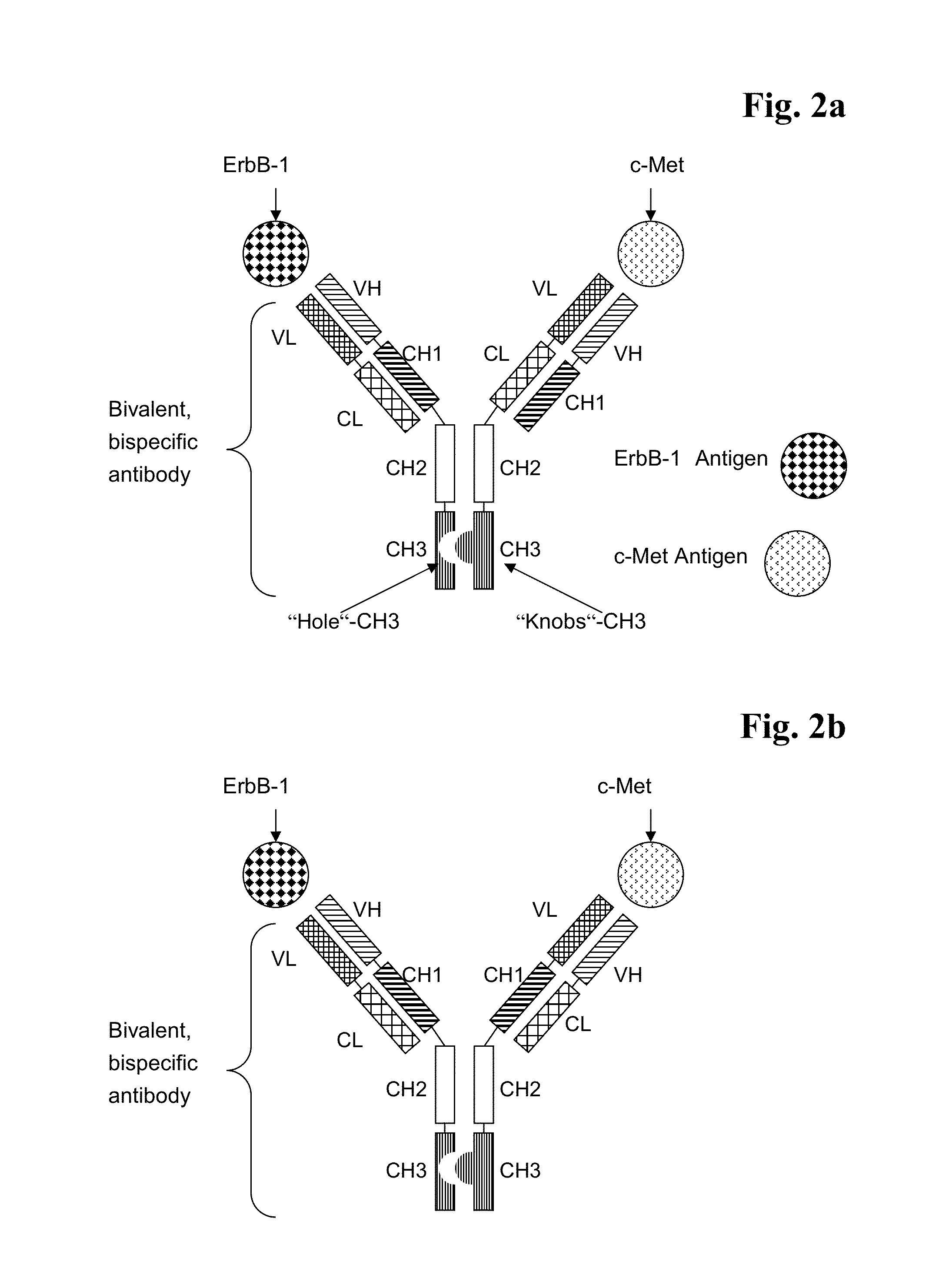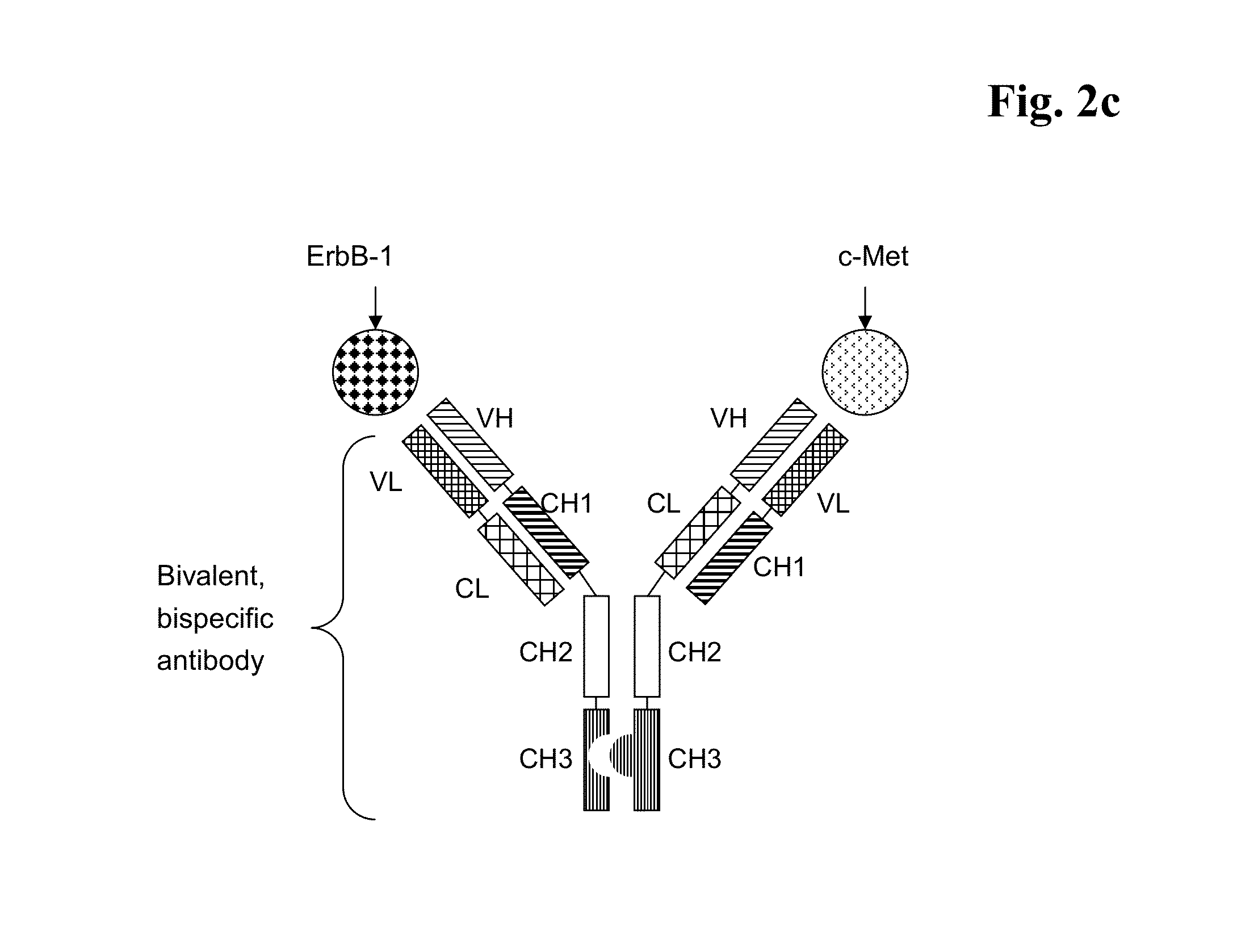Bispecific Anti ErbB1 / Anti cMet Antibodies
a technology of cmet receptor and antibody, which is applied in the field of bispecific anti erbb1/anti cmet receptor antibodies, to achieve the effect of reducing the internalization of the c-met receptor and high valu
- Summary
- Abstract
- Description
- Claims
- Application Information
AI Technical Summary
Benefits of technology
Problems solved by technology
Method used
Image
Examples
example 1
Binding of Bispecific Antibodies to ErbB-1 and c-Met
[0296]The binding affinity was determined with a standard binding assay at 25° C., such as surface plasmon resonance technique (BIAcore®, GE-Healthcare Uppsala, Sweden). For affinity measurements, 30 μg / ml of anti Fcγ antibodies (from goat, Jackson Immuno Research) were coupled to the surface of a CM-5 sensor chip by standard amine-coupling and blocking chemistry on a SPR instrument (Biacore T100). After conjugation, mono- or bispecific ErbB1 / c-Met antibodies were injected at 25° C. at a flow rate of 5 μL / min, followed by a dilution series (0 nM to 1000 nM) of human ErbB1 or c-Met ECD at 30 μL / min. As running buffer for the binding experiment PBS / 0.1% BSA was used. The chip was then regenerated with a 60s pulse of 10 mM glycine-HCl, pH 2.0 solution.
TABLEBinding characteristics of bispecific antibodies binding to ErbB1 / c-Met asdetermined by surface plasmon resonance.bindingBsAB01specificity[Mol]c-Metka (1 / ...
example 2
Inhibition of HGF-Induced c-Met Receptor Phosphorylation by Bispecific Her1 / c-Met Antibody Formats
[0297]To confirm functionality of the c-Met part in the bispecific Her1 / c-Met antibodies a c-Met phosphorylation assay is performed. In this experiment, A549 lung cancer cells or A431 colorectal cancer cells are treated with the bispecific antibodies or parental control antibodies prior exposure to HGF. Binding of the parental or bispecific antibodies leads to inhibition of receptor phosphorylation. Alternatively, one can also use cells, e.g. U87MG, with an autocrine HGF loop and assess c-Met receptor phosphorylation in the absence or presence of parental or bispecific antibodies.
example 3
[0298]Analysis of Her1 Receptor Phosphorylation after Treatment with HER1 / c-Met Bispecific Antibodies
[0299]To confirm functionality of the EGFR-binding part in the bispecific Her1 / c-Met antibodies A431 are incubated either with the parental EGFR antibodies or bispecific Her1 / c-Met antibodies. Binding of the parental or bispecific antibodies but not of an unrelated IgG control antibody leads to inhibition of receptor phosphorylation. Alternatively, one can also use cells which are stimulated with EGF to induce ErbB1 / Her1 receptor phosphorylation in the presence or absence of parental or bispecific antibodies.
PUM
| Property | Measurement | Unit |
|---|---|---|
| pH | aaaaa | aaaaa |
| pH | aaaaa | aaaaa |
| volume | aaaaa | aaaaa |
Abstract
Description
Claims
Application Information
 Login to View More
Login to View More - R&D
- Intellectual Property
- Life Sciences
- Materials
- Tech Scout
- Unparalleled Data Quality
- Higher Quality Content
- 60% Fewer Hallucinations
Browse by: Latest US Patents, China's latest patents, Technical Efficacy Thesaurus, Application Domain, Technology Topic, Popular Technical Reports.
© 2025 PatSnap. All rights reserved.Legal|Privacy policy|Modern Slavery Act Transparency Statement|Sitemap|About US| Contact US: help@patsnap.com



